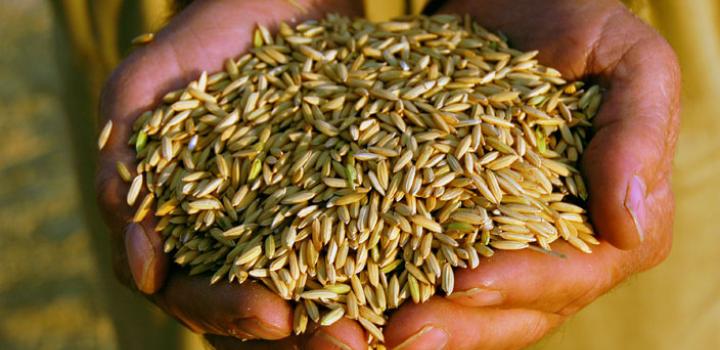New rice research facility to open in Stuttgart
by August 2, 2018 11:46 am 795 views

A lack of rain, and night temperatures can have an impact on the quality of rice at this point in the growing season. A new research greenhouse will be opened Thursday (Aug. 2) in Stuttgart to study how to deal with this problem, according to the University of Arkansas Division of Agriculture.
The $1.88 million 40-feet by 80-feet facility was paid for by the Arkansas Rice Research and Promotion Board.
In 2017, rice growers and other stakeholders came together and decided the problems caused by high night temperatures in rice had to be tackled, rice agronomist Jarrod Hardke said. Researchers will use the greenhouse to breed hybrid and conventional rice that is more tolerant to those conditions.
Researchers will be able to control the temperature, light intensity, humidity, carbon dioxide levels, the length of day and other variables. The project will take five years to complete and is sponsored by the ARRP.
Dry conditions this growing season have hampered rice growing efforts. High daytime temperatures coupled with consistently higher than normal night temperatures have made this season difficult, he added.
“If we don’t see more rain soon, we will absolutely see growers who run out of water and are not able to maintain enough moisture to maximize yield. We’re running through that at a very rapid pace.” he said. “The biggest point is not actually the daytime temperatures, but the nighttime temperatures that don’t allow the plants to adequately cool themselves.”
Researchers discovered in 2010 that rice becomes more “chalky” or brittle when nighttime temperatures are higher, said University of Arkansas Division of Agriculture assistant professor Eshan Shakiba. Rice seeds are mostly composed of starch. When night temperatures rise during seed filling development, chalk occurs. Chalk is loosely packed starch granules and the air space between them.
The study will use 72 different rice cultivars and three different planting dates in two separate stages, phenotyping, or judging the different cultivars based on physical attributes, and genotyping, or observing the genetic makeup. The data collected from the genotyping will be used for breeding programs.
“After phenotyping we will conduct an extensive genotypic study through advanced genetic approaches to identify genetic sources of tolerance to high nighttime temperature stress,” Shakiba said. “For genotyping we will be using advanced molecular technology. We will develop molecular markers that link to the genes associated with tolerance to high nighttime temperatures. These markers will be used as marker assisted selection in breeding programs for identification of progeny lines possessing these desirable genes.”
Rice farmers won’t see any relief in the coming days. The chances for rain in the next five days in Arkansas’s Delta region are low, according to the National Weather Service. Temperatures during the day will rise into the low 90s and will drop into the lower 70s at night through Monday, with only a slight chance of precipitation on Sunday, according to the NWS.
Arkansas is the nation’s top rice producer and state farmers added even more acres, according to the National Agricultural Statistics Service. Arkansas has 1.391 million rice acres in the ground. California was next with 487,000, Louisiana third at 410,000 acres.
Arkansas Farmers planted 1.161 million rice acres last year, about 47.1% of all rice acres planted in the U.S. Those acres accounted for 82.6 million hundredweight of rice, and it represented 46.4% of the 178.2 million hundredweight produced in the country.
During the last three years, Arkansas has accounted for more than 47% of the nation’s total rice production, according to federal reports. Per acre, farmers had a yield of 164.4 bushels per acre, or 7,400 pounds. It was the third highest yield on record in the state and a 570-pound per acre uptick from 2016. Rice production has a $4 billion annual impact on the state’s economy and creates 25,000 jobs, according to Arkansas Farm Bureau.
